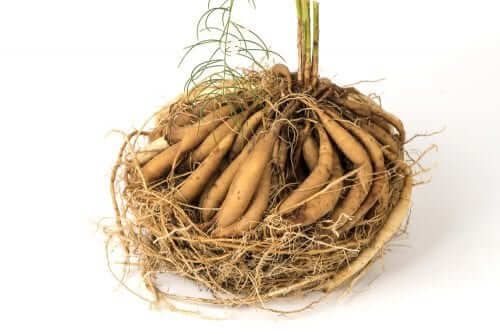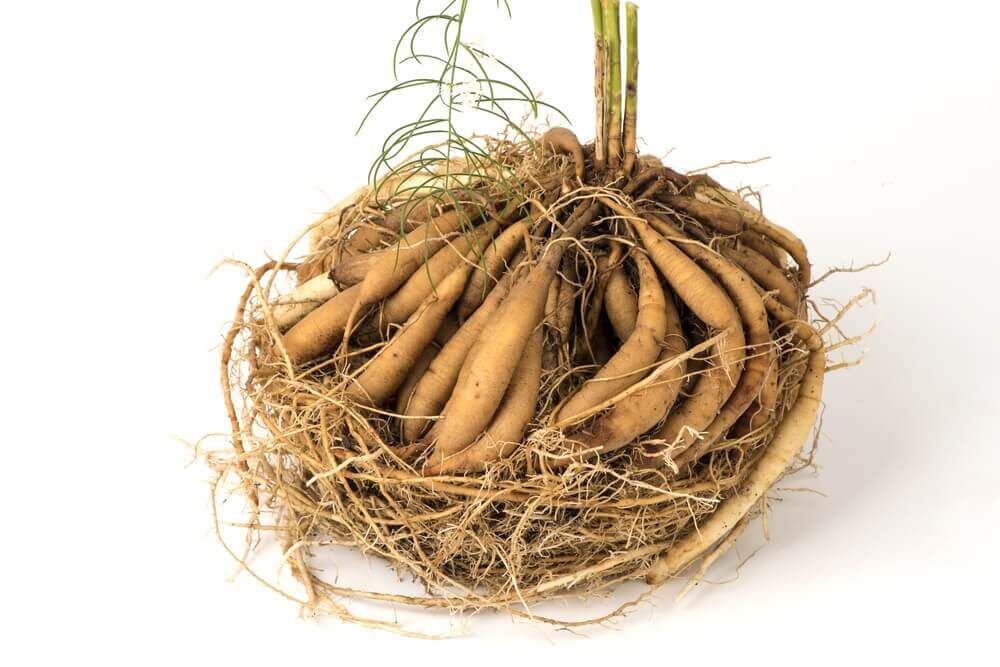Aging and stress are the two biggest culprits that you are up against in today’s society. Both contribute significantly to your health decline, with each contributing respectively to the other. Today’s society is very demanding, by choice mind you, which can create significant burdens on the body, both for men and women. Both men and women are susceptible to age related changes, in body and mind, which can impact vitality and even sexual function or desire. Shatavari, or asparagus root, is one time proven remedy that can greatly assist with female health and rejuvenation, being used for centuries in Ayurvedic medicine. Can Shatavari, or asparagus root, help to revitalize and restore your body?

Health is complicated and disease is essentially created when the body is out of balance. What does this mean? In Ayurvedic medicine, this is a state of imbalance between Vata, Pitta, and Kapha. In Chinese medicine, this may be a balance within the 5-organ system, or 5-vital substances which include blood, Yin, Yang, Qi and Essence or Jing. This imbalance creates fatigue, weakens the body and its defenses, and opens the door for potential health problems.
In Chinese medicine, two of the biggest factors outside of Qi or energy, is the concept of Yin and Yang. Yin is a factor in the body which is cooling and moistening, while Yang is more heating and drying. There must be balance between the two for energy production and vitality. This concept is evident on a different level in Ayurvedic medicine between the three doshas; Vata, Pitta, and Kapha. While both genders contain Yin and Yang, men are generally viewed as more Yang and women more Yin in nature.
Stress, diet, and our chosen lifestyle can impact this balance between Yin and Yang, which inevitably impacts energy production and even immune function. A big part of restoring health or balance in that person is tonifying or supporting the component which may be missing or drained in the body.
In men, as they age, testosterone levels often decrease, which impacts overall health and well-being on many levels. Men often become ‘colder’ in nature as they lose their Yang or heat component. In women, the opposite is true, with decreasing levels of estrogen, which impact health and create the onset of menopause and all related symptoms. Women often become ‘hotter’ in nature, as they lose their Yin component.
Both men and women lose vitality as they age, often attributed to a decline in the Yin component, which is cooling and moisturizing. In men, this is often seen as loss of strength, cognitive problems, constipation, lower back and knee pain, as well as sexual dysfunction problems. In women, we have the same issues, but it can become more evident in associated problems with the menstrual cycle, hair loss and dry skin, vaginal dryness, and overall loss of libido or sexual desire.
Keep in mind here that stress and diet are the two key players with both genders. Yin naturally declines as we age, but that rate of loss can vary tremendously between people. The onset of menopause and associated hot flashes is directly associated with a Yin deficiency. Would you believe that in some cultures, women experience menopause with no related problems at all, other than a discontinuing of menstruation? Why, one would ask? Stress, lifestyle, and diet.
Solutions for restoration? Control stress, improve the diet, and refortify Yin in your body.
Ayurvedic medicine has 2 major tonics that are used, one for men and one for women.
- Ashwaghanda is seen as one major male tonic, which is warming and drying in nature. It serves as a primary adaptogen, helping to balance stress pathways and rejuvenate the male body. It can also boost male sexuality and testosterone. While Ashwaghanda can benefit both men and women, it is seen as warming, so must be used in the correct circumstances to aid in restoring balance. Cordyceps sinensis is a close second, as the impact on the body is very similar, but often less heating and drying in nature. Both enhance the Yang component due to the heating nature.
- Shatavari is seen as the major female tonic and a primary adaptogen, which is more cooling and moisturizing, better suited for tonifying or restoring the female Yin component. It supports the female aspect, estrogen, and hormone balance in women. Wild Yam is a close second with similar female tonifying properties.
Shatavari; Women’s Health and Rejuvenation
Shatavari is a traditional Ayurvedic herb, Asparagus racemosus or asparagus root, used to promote female health and well-being. It is not the same as the traditional asparagus that we find in the grocery store, but of a different variety. By nature, it is moisturizing to the body, cooling in nature, and nutritive. Shatavari balances excess Pitta and reinforces Vata. In Chinese medicine, it would tonify Yin and cool the body, while providing for moisture.
Through these properties, Shatavari is more ‘female’ in nature and indeed, possesses internal natural phytoestrogens which can promote well-being in women. It is why it is one of the most revered herbs in Ayurvedic medicine to combat female related ailments from reproductive to hormonal concerns, skin and vaginal dryness, and even improvement in lactation for new mothers. Menopause related symptoms are another area, with hot flashes and poor sleep. These are all related to a loss of moisture, Yin, and hormonal imbalance within the body.
Shatavari root contains many phytochemicals that possess and demonstrate medicinal properties. These include steroidal saponins, asparagamine A, shatavarosides, and shatavarins, not to mention some nutritional components including vitamins and minerals. It possess anti-inflammatory and anxioxidant properties, in addition to anti-anxiety benefits.
Other pertinent research on Asparagus racemosus includes:
- Shatavari root may improve female hormone imbalance, polycystic ovarian syndrome, and infertility by reducing oxidative stress and increasing antioxidant levels in the body (1)
- Saponins from Shatavari exert a neuroprotective effect in Alzheimer’s disease and reduced amyloid plaque deposition (2)
- Anti-diabetic effect through inhibition of α-amylase and α-glucosidase enzymes (3)
- Antioxidant and liver protective benefits (4)
- Anti-cancer activity of Shatavarins contained within Asparagus racemosus with reduction in tumor burden and tumor cell counts (5)
- Improved stress tolerance and reduced the increased weight of the adrenal glands and the spleen upon the impact of stress (6)
- Increases prolactin hormone levels in lactating mothers, impacting lactation and milk production (7)
- Demonstrates anti-Candidal yeast activity very similar to standard antibiotics (8)
- Anti-depressant effects through serotonin system and antioxidant mechanisms (9)
Shatavari; Benefiting Men and Women
If you are a women, it is not uncommon to experience health problems as a result of overall imbalance and the aging process. These symptoms generally indicate an excess of heat in the body, an excess of Yang, and go along with dryness as the heat literally evaporates moisture and the Yin aspect.
- Menopausal symptoms
- Hot flashes
- Heat in the head
- Irritability and flushing
- Constipation
- Dry, thin skin, vaginal dryness
- Hair loss or thinning
- Menstrual concerns, cramping, reduced flow
These all go along with excess heat in the body and reduced Yin or moisture. Men are not exempt from these clinical signs of excess heat as well, which indicates an excess of Yang, and loss of the Yin component.
In men, it is not uncommon to see:
- Flushing in the face
- High blood pressure
- Irritability
- Excess body heat, sweating
- Constipation
- Dry skin
Health is about balance, not just in our lifestyle, but in our body. Imbalance is created as a result of our diet, stress, physical and mental activities, and even sexual activity. Recognizing and restoring balance is crucial to well-being on many levels. Shatavari is one of several ‘female’ rejuvenating tonic herbs which helps to restore Yin, coolness and moisture to the body on a basic level, not to mention the direct impact on health and hormone balance. It is a primary adaptogen, helping the body to respond and recover from stress and illness. Despite being a ‘female’ herb, men can benefit additionally, using it to replenish and balance their Yin or female aspect.
How to get your Shatavari??
Author: Tom Schell, D.V.M, CVCH, CHN
References:
- Pandey AK et al. Impact of stress on female reproductive health disorders; Possible beneficial effects of Shatavari. Biomed Pharm. 2018 Jul;103:46-49
- Kashyap P et al. Sarasapogenin: A steroidal saponin from Asparagus racemosus as multi-target directed ligand in Alzheimer’s Disease. Steroids. 2019. Oct 28; 153
- Vadivelan R et al. Antidiabetic potential of Asparagus racemosus wild leaf extracts through inhibition of α-amylase and α-glucosidase. J Trad Comp Med. 2018. Apr 30;9(1):1-4
- Acharya SR et al. Antioxidant and hepatoprotective action of Asparagus racemosus wild root extracts. Ind J Explor Biol. 2012. Nov;50(11):795-801
- Mitra SK et al. Shatavarins (containing Shatavarin IV) with anticancer activity from the roots of Asparagus racemosus. Ind J Pharm. 2012 Nov-Dec;44(6):732-6
- Joshi T et al. Antistress activity of ethanolic extract of Asparagus racemosus wild roots in mice. Ind J Exp Biol. 2012 Jun:50(6):419-424
- Gupta M, Shaw B. A double-blind randomized clinical trial for evaluation of galactogogue activity of wild Asparagus racemosus. Iran J Pharm Res. 2011. Winter;10(1):167-72
- Uma B et al. Anticandidal activity of Asparagus racemosus. Ind J Pharm Sci. 2009 May;71(3):342-3
- Singh GK et al. Antidepressant activity of Asparagus racemosus in rodent models. Pharm Biochem Behav. 2009 Jan;91(3):282-90



Is this also good for cyst on the adrenal glands?
Great article! I thoroughly enjoyed reading about the benefits of Shatavari Asparagus for women’s health and sexual dysfunction. It’s fascinating to learn about the traditional uses of this herb and how it can positively impact various aspects of women’s well-being.
The fact that Shatavari is known as the “Queen of Herbs” for women speaks volumes about its potential benefits. From hormonal balance to boosting libido, it’s impressive to see how Shatavari can address a wide range of concerns that many women face. It’s encouraging to know that nature has provided us with such a powerful and natural remedy.
I appreciate the inclusion of scientific research and studies that support the effectiveness of Shatavari. It gives credibility to the claims made about this herb and reassures readers about its safety and potential as a complementary treatment option.